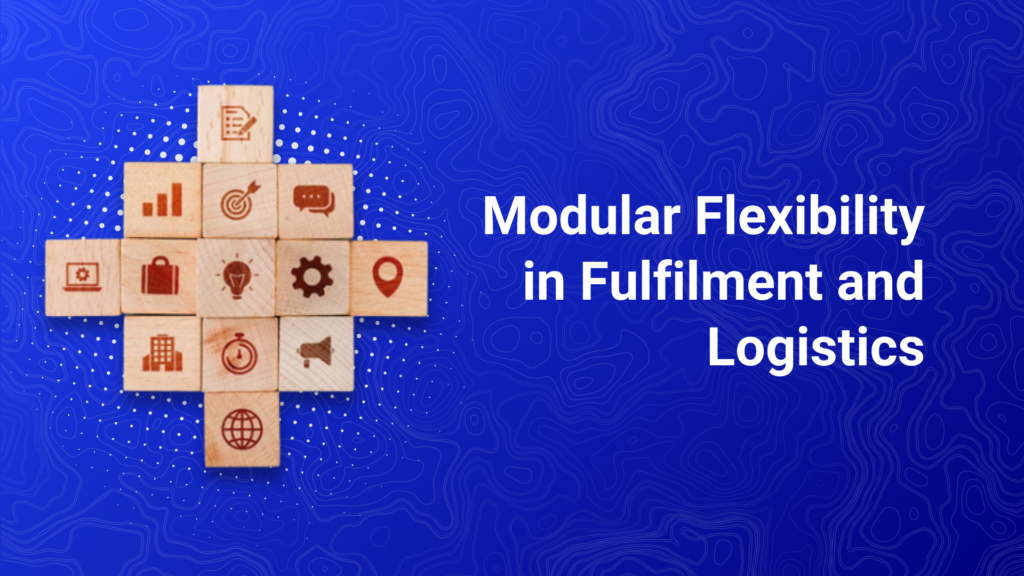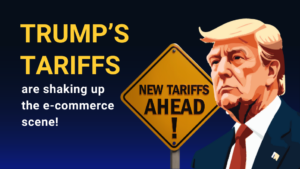Modular fulfillment is a new approach to traditional linear fulfillment models that can equip large global e-commerce brands with the missing piece of their supply chain puzzle. Here’s what you need to know.
The pick, pack, and delivery model should be able to adapt as a company’s e-commerce requirements change; whether because of evolving customer demands or due to a constantly changing global economy.
Online fulfillment requires a great deal of flexibility and scalability and there are only so many ways to improve stationary rack storage locations. Most of the time, automating the fulfillment process is the best course of action.
To do this, e-commerce retailers must choose the appropriate automated system and implement it. This system should be able to support the fluidity required for the e-commerce fulfillment process, but it isn’t necessarily the complete solution in today’s environment.
Beyond Automation Lies Flexibility
Micro-fulfillment automation strategies can minimize manual touches resulting in more accurate orders, improved ergonomics, lower labor costs and travel time, lessened returns, and saves space by operating in a smaller footprint.
However, today’s e-commerce retail landscape needs more than just micro-fulfillment automation. This is because automation alone can’t drive the more holistic changes sometimes needed by a retailer who must rapidly scale their business up or down due to any number of economic disruptions.
As an example, if a retailer must quickly unplug a handful of warehouse locations, or rapidly change to a different warehouse location because of supply chain adjustments to accommodate product sourcing re-routing, automation at the pick, pack, and ship level won’t do much to address this.
What’s worse, most of today’s logistics and fulfillment contracts involving e-commerce retailers handcuff companies into agreements that prevent them from making such decisions that can have an almost immediate impact on the bottom line.
This scenario affects a large percentage of e-commerce retailers in all parts of the world simply because most are locked into such contracts that prevent the flexibility that is truly needed. This scenario is similar to technology developers forced to adhere to the strict rules set forth by Apple to participate in and sell through the company’s app store.
Modular Fulfillment Revolutionizes Entire Industries
Apple has been synonymous with a closed ecosystem for many years, which is a significant reason why Android mobile phones have a much larger market share. Android takes more of an open-sourced approach, allowing alternate app developers and stores on its devices giving everyone – developers, resellers, and consumers, more freedom and flexibility to take part in an overall experience that meets specific and unique needs.
E-commerce retailers in today’s landscape need a similar modular fulfillment approach in their supply chain strategies.
Today’s retailers of every size need modular platforms that allow them to simplify, automate, and customize their entire e-commerce fulfillment processes, from order to delivery, with just a few clicks. This plug-and-play approach enables them to build integrations that connect, consolidate, and synchronize all their shopping carts, marketplaces, and ERPs to manage them on a single platform – in minutes.
This way they can scale their business to new markets and take advantage of expansion opportunities with ease. This is truly key in today’s changing economy, as most of their current contract-adhered partners are more concerned with a walled approach as opposed to leading with flexibility in mind.
Modular Fulfillment in Today’s Economy
A modular fulfillment strategy allows for better shipping management through full visibility and control over parcel shipping, returns processes, global tracking, and more. By adopting a modular fulfillment solution, global e-commerce brands can realize smart inventory updates with real-time inventory sync features for better transparency. It allows them to receive automatic updates for all SKUs, including saved and blocked items, as well as stock replenishment reminders.
Global brands also gain better visibility and access to keeping end customers informed with real-time updates through improved monitoring of shipments in real-time. What’s more, they can also automate their entire returns process to improve their overall customer experience.
Lastly, AI-driven smart cost estimation based on live pricing reactive to sudden market changes enhances billing predictability and allows brand owners to better budget their monthly operating expenses.
As more e-commerce retailers adopt this flexible, modular approach, they will quickly realize how this strategy enables them to rapidly adjust and adapt to the speed of business and the change necessary to accommodate today’s customers.
If you’re a global e-commerce brand that is looking for the missing piece of your supply chain puzzle, then you should ship with Floship. Click here to get in touch with our team.

Ready To Upgrade Your Logistic Solution?
Speak to Floship ecommerce logistic consultant about improving your global support chain today





